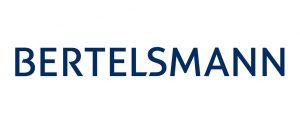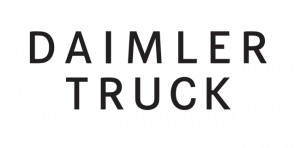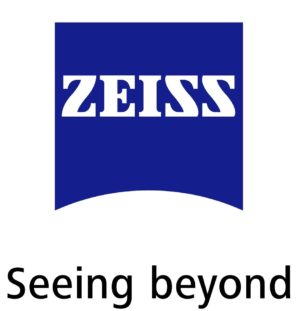Statistik & Marketing
Zur Verbesserung unserer Website erheben wir anonymisierte Daten für Statistiken und Analysen. Wir können damit z.B. die Besucherzahlen prüfen und die Wirkung einzelner Unterseiten einschätzen. Außerdem wird personalisierte Werbung ermöglicht.
|
Was tun wir?
|
Warum tun wir es?
|
Rechtsgrundlage
|
Weitergabe der Daten
|
Dauer der Speicherung
|
|
Google Analytics *1
|
Um unsere Website für Sie optimal zu gestalten, analysieren wir das Nutzverhalten.
|
Einwilligung (Art. 6 Abs. 1 lit. a)
|
Automatische Datenübertragung an Google Ireland Limited.
|
Die einzelnen Cookies werden unterschiedlich lange gespeichert:
- ga: 2 Jahre
- gid: 24 Stunden
- gat: 1 Minute
|
|
Double-Click *2
|
Double-Click regelt, welche Werbung zu welchem Zeitpunkt angezeigt wird.
|
Einwilligung (Art. 6 Abs. 1 lit. a)
|
Automatische Datenübertragung an Google Ireland Limited.
|
Die Speicherung nimmt Google vor. Auf die Speicherdauer haben wir keinen Einfluss.
|
Ergänzende Informationen:
*1/*2 Google Analytics & Double-Klick
Diese Website benutzt Google Analytics, einen Webanalysedienst der Google Ireland Limited („Google“). Die durch Cookies erzeugten Informationen über Ihre Benutzung dieser Website werden in der Regel an einen Server von Google in den USA übertragen und dort gespeichert. Im Falle der Aktivierung der IP-Anonymisierung auf dieser Webseite, wird Ihre IP-Adresse von Google jedoch innerhalb von Mitgliedstaaten der Europäischen Union oder in anderen Vertragsstaaten des Abkommens über den Europäischen Wirtschaftsraum zuvor gekürzt. Nur in Ausnahmefällen wird die volle IP-Adresse an einen Server von Google in den USA übertragen und dort gekürzt. Im Auftrag des Betreibers dieser Website wird Google diese Informationen benutzen, um Ihre Nutzung der Website auszuwerten, um Reports über die Websiteaktivitäten zusammenzustellen und um weitere mit der Websitenutzung und der Internetnutzung verbundene Dienstleistungen gegenüber dem Websitebetreiber zu erbringen. Die im Rahmen von Google Analytics von Ihrem Browser übermittelte IP-Adresse wird nicht mit anderen Daten von Google zusammengeführt.
Nähere Informationen zu Nutzungsbedingungen und Datenschutz von Google Analytics finden Sie hier (Link: https://marketingplatform.google.com/about/analytics/terms/de/) bzw. hier (Link: https://support.google.com/analytics/answer/6004245?hl=de). Über Google Analytics werden Daten aus AdWords und dem Double-Click-Cookie ausgewertet. Sollten Sie dies nicht wünschen, können Sie dies über den Anzeigenvorgaben-Manager (Link: https://adssettings.google.com/authenticated?hl=de) deaktivieren.
Wir weisen Sie darauf hin, dass auf dieser Webseite Google Analytics um den Code „ga(’set‘, ‚anonymizeIp‘, true);“ erweitert wurde, um eine anonymisierte Erfassung von IP-Adressen (sogenanntes „IP-Masking“) zu gewährleisten. Bei im Browser eingeschaltetem Do-Not-Track-Merkmal, werden ohne Zustimmung keine Skripte von Google Analytics eingebunden.
Komfort & Optik
Zur besseren Nutzbarkeit und für ein modernes und ansprechendes Design auf unserer Website verwenden wir unterschiedliche Dienste (Youtube, Google Maps, TypeKit). Ohne Einbindung dieser Dienste, werden Standardschriftarten geladen und das Anschauen von Videos erfordert zusätzliche Interaktionen.
|
Was tun wir?
|
Warum tun wir es?
|
Rechts-grundlage
|
Weitergabe der Daten
|
Dauer der Speicherung
|
|
Google Maps*3
|
Diese Website benutzt die Google Maps API, einen Kartendienst der Google Ireland Limited, zur Darstellung einer interaktiven Karte.
|
Einwilligung (Art. 6 Abs. 1 lit. a)
|
Automatische Weitergabe an Google Ireland Limited.
|
Die Speicherung nimmt Google Maps vor. Aktuell beträgt die Speicherdauer 6 Monate.
|
|
TypeKit WebFonts *4
|
Für die Darstellung des Website-Angebots wird die Schrift „Facit“ als Typekit-Dienst von Adobe genutzt.
|
Einwilligung (Art. 6 Abs. 1 lit. a)
|
Adobe kann im Zuge der Erbringung des Typekit-Dienstes Informationen über die Schrifttypen (hier „Facit“) erfassen, die auf dem Webserver bereitgestellt werden.
|
Die Speicherung nimmt Adobe vor. Auf die Speicherdauer haben wir keinen Einfluss.
|
|
Youtube *5
|
Um Videos externer Quellen visuell ansprechbar darzustellen, nutzen wir einen von der Google Ireland Limited bereitgestellten Dienst (Youtube).
|
Einwilligung (Art. 6 Abs. 1 lit. a)
|
Beim Aufruf der Youtube-Videos werden Daten an die Youtube-Server übertragen. Diese können ihrem Nutzer-Konto zugeordnet werden, wenn Sie angemeldet sind.
|
Die Speicherung nimmt Youtube vor. Aktuell beträgt die Speicherdauer 1 Jahr.
|
Ergänzende Informationen:
*3 Google Maps
Diese Website benutzt die Google Maps API, einen Kartendienst der Google Ireland Limited („Google“), zur Darstellung einer interaktiven Karte. Durch die Nutzung von Google Maps können Informationen über Ihre Benutzung dieser Website (einschließlich Ihrer IP-Adresse) an einen Server von Google in den USA übertragen und dort gespeichert werden.
Google wird die durch Maps gewonnenen Informationen gegebenenfalls an Dritte übertragen, sofern dies gesetzlich vorgeschrieben ist oder soweit Dritte diese Daten im Auftrag von Google verarbeiten. Google wird in keinem Fall Ihre IP-Adresse mit anderen Daten von Google in Verbindung bringen. Trotzdem wäre es technisch möglich, dass Google aufgrund der erhaltenen Daten eine Identifizierung zumindest einzelner Nutzenden vornehmen könnte. Es wäre möglich, dass personenbezogene Daten und Persönlichkeitsprofile von Nutzern der Website von Google für andere Zwecke verarbeitet werden könnten, auf welche wir keinen Einfluss haben und haben können.
Weitere Informationen sind in den Google-Datenschutzbestimmungen https://policies.google.com/privacy zu finden.
*4 Typekit WebFonts
Für die Darstellung des Website-Angebots wird die Schrift „Facit“ als Typekit-Dienst von Adobe genutzt. Im Zuge der Erbringung des Typekit-Diensts werden keine Cookies platziert oder verwendet, um den Schrifttyp bereitzustellen. Dennoch kann Adobe im Zuge der Erbringung des Typekit-Dienstes Informationen über die Schrifttypen (hier „Facit“) erfassen, die auf dem Webserver bereitgestellt werden. Die Informationen werden zur Abrechnung und Einhaltung von Vorschriften verwendet und können Folgendes umfassen:
- bereitgestellte Schriften
- ID des Webprojekts
- JavaScript-Version des Webprojekts (String)
- Art des Webprojekts (String „configurable“ oder „dynamic“)
- Einbettungstyp (ob Sie den JavaScript- oder CSS-Einbettungscode verwenden)
- Konto-ID (identifiziert den Kunden, von dem das Webprojekt stammt)
- Dienst, der die Schriftarten bereitstellt (z. B. Adobe Fonts)
- Server, der die Schriftarten bereitstellt (z. B. Server von Adobe Fonts oder Unternehmens-CDN)
- Hostname der Seite, auf der die Schriften geladen werden
- Die Zeit, die der Webbrowser zum Herunterladen der Schriften benötigt
- Die Zeit vom Herunterladen der Schriften mit dem Webbrowser bis zur Anwendung der Schriften
- Ob ein Werbeblocker installiert ist, um festzustellen, ob der Werbeblocker die korrekte Verfolgung der Seitenaufrufe beeinträchtigt
- Betriebssystem- und Browser-Version
Weitere Informationen finden Sie unter: https://www.adobe.com/de/privacy/policies/adobe-fonts.html
*5 YouTube
Wir nutzen für die Einbindung von Videos u.a. eine Schnittstelle von YouTube. YouTube wird betrieben von der Google Ireland Limited.
Wenn Sie die mit einem YouTube-Plugin versehenen Unterseiten unserer Website aufrufen, wird eine Verbindung zu den YouTube-Servern hergestellt und dabei das Plugin dargestellt. Hierdurch wird an den YouTube-Server übermittelt, welche unserer Unterseiten Sie besucht haben. Sind Sie dabei als Mitglied bei YouTube eingeloggt, ordnet YouTube diese Information Ihrem persönlichen Benutzerkonto zu. Bei Nutzung des Plugins wie z. B. Anklicken des Start-Buttons eines Videos wird diese Information ebenfalls Ihrem Benutzerkonto zugeordnet.
Weitere Informationen zur Datenverarbeitung und Hinweise zum Datenschutz durch YouTube (Google) finden Sie unter www.google.de/intl/de/policies/privacy/ .















































